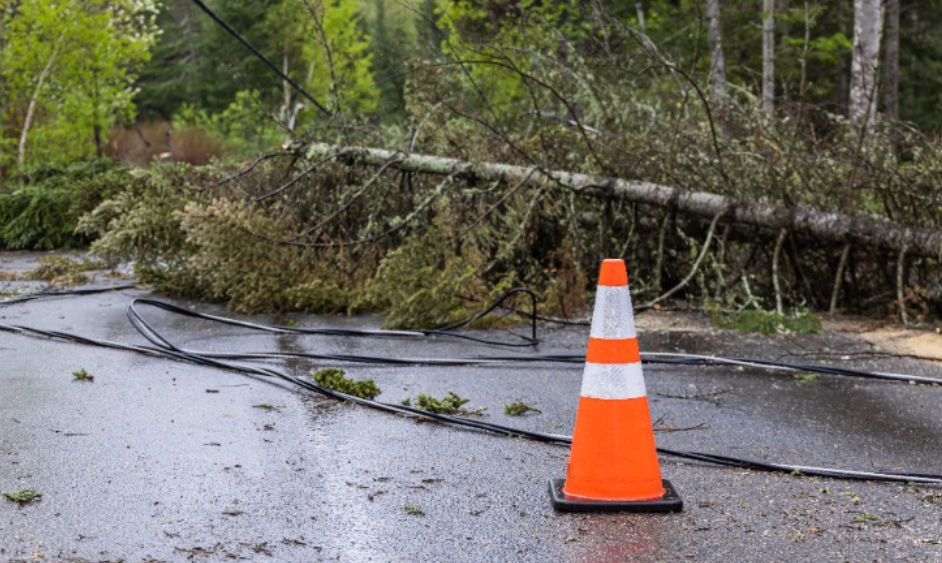Most Canadian executives expect extreme weather to hit business operations in 2025

More than nine in 10 Canadian executives expect extreme weather to disrupt their business in 2025, according to new research by KPMG in Canada.
As per KPMG’s survey of 351 C-suite leaders, 93 percent say they are concerned their company will be impacted this year by extreme weather, and 90 percent now plan operations around the expectation that it “could – and will – happen at any time.”
The same report found that 91 percent of business leaders are more concerned about weather disruptions following the wildfire disaster in Los Angeles County, with 68 percent preparing for such an event.
Sixty-one percent say they are “extremely concerned,” and 43 percent of those have taken precautions. Another 31 percent are “somewhat concerned,” with 25 percent taking precautions.
Roopa Davé, National Climate Risk Leader at KPMG in Canada, said concern among CEOs has grown significantly over the past two years as climate change increasingly impacts Canadian businesses.
“In 2023, they viewed extreme weather as a possible factor in their operational and risk plans. But today it's absolutely a must-plan-for reality.”
Davé added that many are taking steps ranging from updating continuity plans and adopting climate-modelling tools to investing in renewable energy and retrofitting buildings.
As reported by KPMG, extreme weather had a substantial financial impact last year:
- 68 percent experienced reduced profits
- 30 percent reported losses of 6–10 percent
- 14 percent saw losses of 11–25 percent
- 6 percent faced losses of more than 25 percent
- 18 percent experienced losses of 5 percent or less
In addition to profit losses:
- 65 percent faced direct operational disruptions
- 60 percent reported employee productivity losses
- 52 percent experienced supply chain disruptions
- 47 percent faced significant cost increases
- 43 percent suffered physical damage to stores, factories, or assets
KPMG found that 53 percent of businesses are now modifying infrastructure to withstand extreme weather.
This includes retrofitting for heat resilience, integrating green infrastructure, or using permeable materials.
In addition, 78 percent are investing in technology, data, and analytics to manage climate risk.
According to Leon Gaber, national lead for Critical Infrastructure Resilience and Emergency Management at KPMG in Canada, “Whether disaster strikes in remote areas or in urban centres, companies and governments must continuously evaluate and update emergency planning.”
Gaber said that technologies such as artificial intelligence, drones, remote sensors, and digital twins are helping businesses forecast and respond to climate threats.
Two-thirds of respondents said their company now has a multi-year adaptation plan.
KPMG reported that:
- 62 percent performed a climate risk assessment
- 66 percent plan to conduct one within two years
- 56 percent are collaborating with climate experts
- 67 percent created new emergency plans following last year’s weather events
- 62 percent formed internal emergency response teams within the past year
However, as per KPMG, 68 percent of businesses say fears of a recession due to the US-led global trade war are forcing them to cut back on climate investments.
Doron Telem, KPMG’s National ESG Leader, said companies are being pushed to find cost-saving measures amid the trade war.
“Mother Nature will not cut us a break because of new tariffs,” he stated.
He said businesses should treat climate events like other critical risks, including cyber and supply chain disruptions.
According to Telem, scenario analyses, tabletop exercises, and recurring emergency response training should become standard practice.
Insurance remains a challenge for many.
According to KPMG:
- 63 percent have some coverage but are looking to expand it
- 61 percent are conducting comprehensive weather insurance reviews
- 31 percent had coverage cancelled due to climate risks
- 32 percent cannot afford severe weather insurance
According to Statistics Canada, insurer payouts on catastrophic weather events averaged $400m annually between 1983 and 2008.
Since 2009, that figure has risen to nearly $2bn annually.
In 2022, it reached $3.4bn and remained high at $3.1bn in 2023.
In 2024, four major events—Toronto floods, Jasper wildfires, Calgary hailstorms, and Hurricane Debby in Quebec—led to payouts exceeding $7.1bn.
A report from the Intact Centre on Climate Adaptation noted that for every $1 in insured losses, another $3–4 in uninsurable losses are absorbed by businesses, individuals, and governments.
| KPMG in Canada conducted the survey between April 16 and May 6, using Sago’s business research panel. The companies surveyed had annual revenues above $10m. No companies below $10m in annual revenue were surveyed. |



